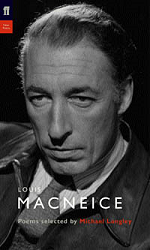Top 74 Quotes & Sayings by Louis MacNeice
Explore popular quotes and sayings by a British poet Louis MacNeice.
Last updated on April 14, 2025.
My stepmother appeared when I was about 9. My brother was sent off to an institute in Scotland & my sister & I were sent to school. As my stepmother's ideas were then wholly Quaker, mixed with a naive & charming innocence & a little snobbery, it was one dotty epoch on top of another. I always remained terrified of my father.
For this reason poets and artists developed the doctrine of Art for Art's Sake. The community did not appear to need them, so, tit for tat, they did not need the community. This being granted, it was no longer necessary or even desirable to make one's poetry either intelligible or sympathetic to the community.
Though I do regard the Inquisition in general and the burning of Giordano Bruno in particular as blots on the history of the Roman Catholic Church, I am far from being actuated by hatred of that church, and in fact cannot imagine that European civilization would have developed or survived without it.
Today I am so at home in Dublin, more than in any other city, that I feel it has always been familiar to me. But, as with Belfast it took me years to penetrate its outer ugliness and dourness, so with Dublin it took me years to see through its soft charm to its bitter prickly kernel - which I quite like too.























